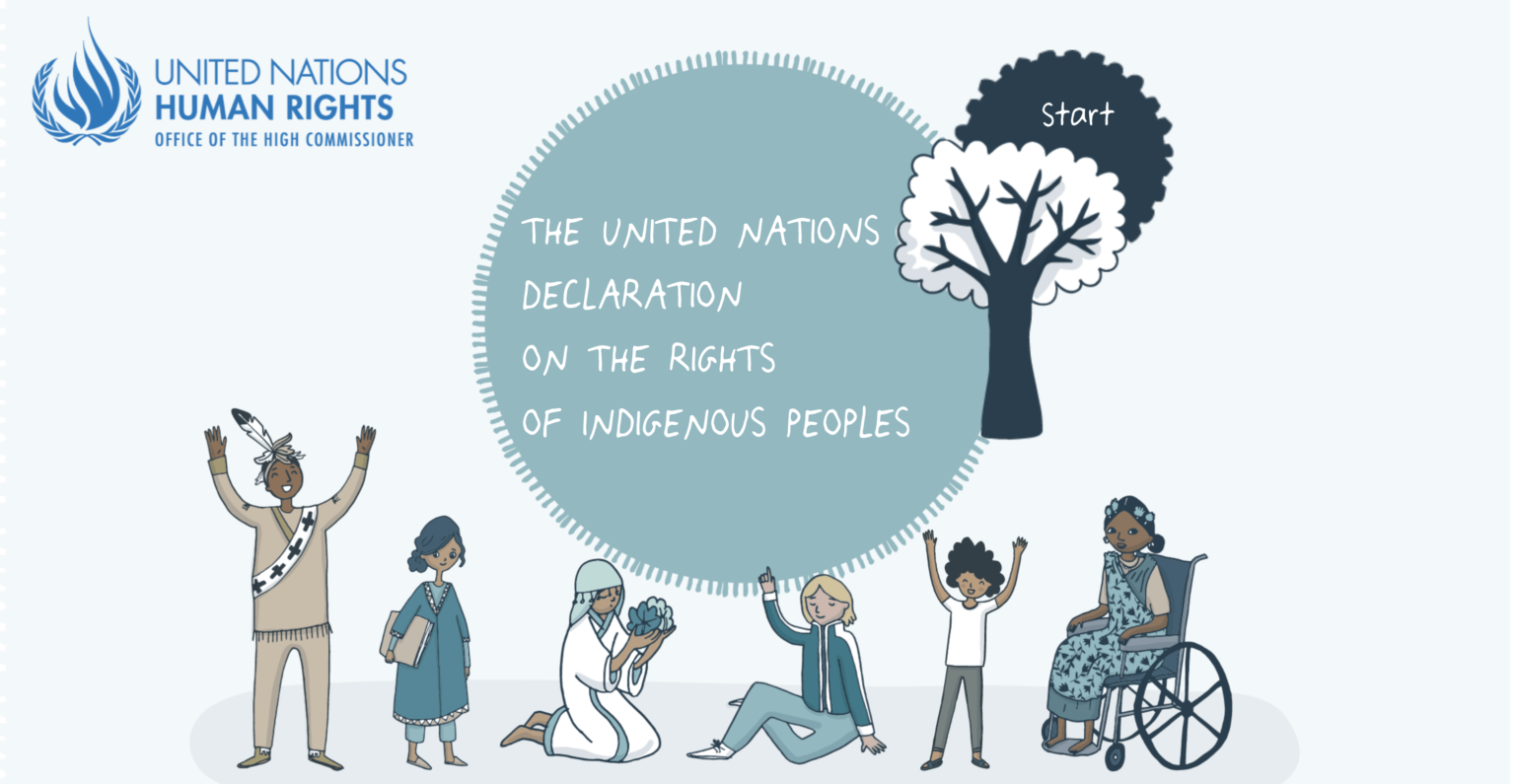E-Learning Project with OHCHR
Here at eSkills, we help companies and organisations from different sectors with online learning. Take a look at how we helped the Office of the United Nations High Commissioner for Human Rights (OHCHR) with an e-learning course designed to raise awareness on the rights of Indigenous Peoples!
ABOUT THE CLIENT
The United Nations Human Rights Office of the High Commissioner for Human Rights (OHCHR) works to promote and protect human rights that are guaranteed under international law.
One of its mandates consists of improving human rights protection of Indigenous Peoples through strategies such as strengthening relevant legislations, policies and practices, including of indigenous peoples themselves, while promoting key human rights standards, such as the UN Declaration on the Rights of Indigenous Peoples (UNDRIP).
THE CHALLENGE
Albeit its significance, the UNDRIP itself is technically complex and extensive, often with jargon that might be difficult for the public to understand. The OHCHR selected eSkills to help transform their document into an accessible and engaging course. They hope to raise greater awareness amongst indigenous peoples, other parties and the public on these specific rights recognized in the UN Declaration and the various UN mechanisms that defend and protect these rights.
THE PROCESS
Our team at eSkills immediately got down to work to design the programme from scratch, starting with interviewing key stakeholders to gather relevant insights and materials.
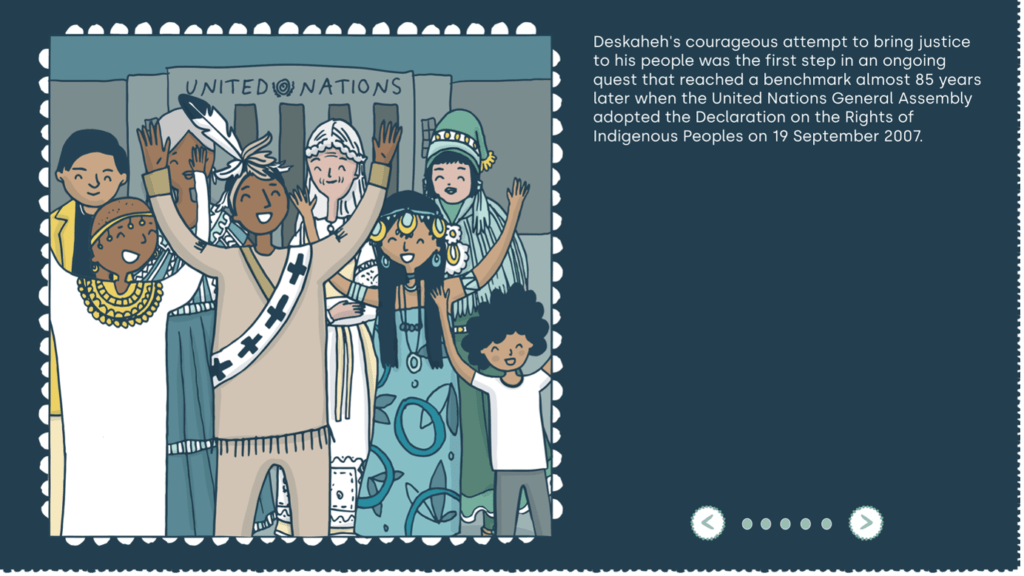
Fun fact: While designing the illustration of Chief Deskaheh (a pioneer of indigenous leaders who travelled to Geneva in 1923 to attempt to address the League of Nations on the rights of his people), his direct descendants shared how he dressed as well as his physical traits so that we could portray him as realistically as possible!
We also attended a live UN Conference on Indigenous Peoples to better understand our subject matter.
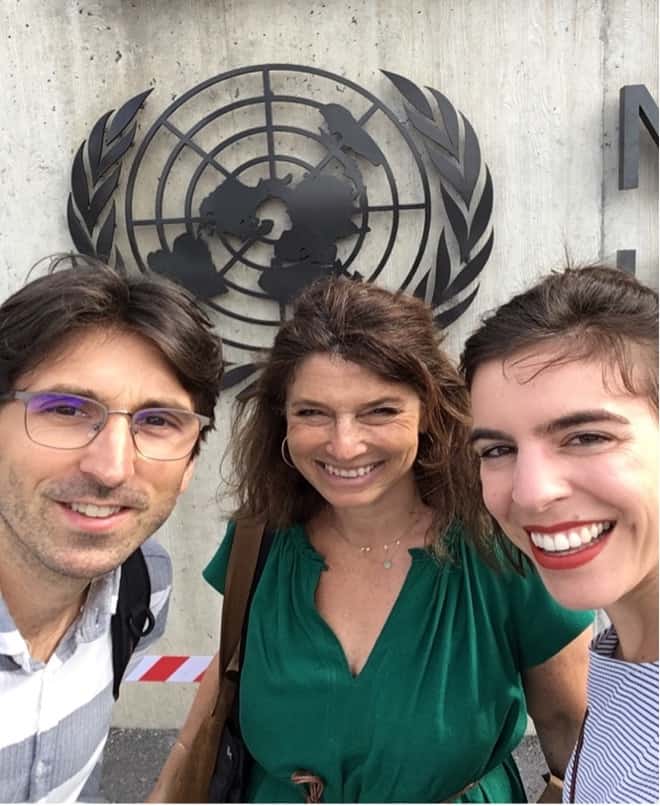

THE SOLUTION
To make the technical messages more comprehensible for the target learners, we designed two engaging modules, which combined appropriate case studies, scenarios, music and animations to bring the content to life.
In the first module, to explain each of the rights of the Indigenous Peoples under the UNDRIP, we created beautiful, bespoke illustrations alongside each article. The use of colourful, lively imagery reflects the rich diversity and cultural backgrounds of Indigenous Peoples and enables the learners to imagine their environments more vividly.
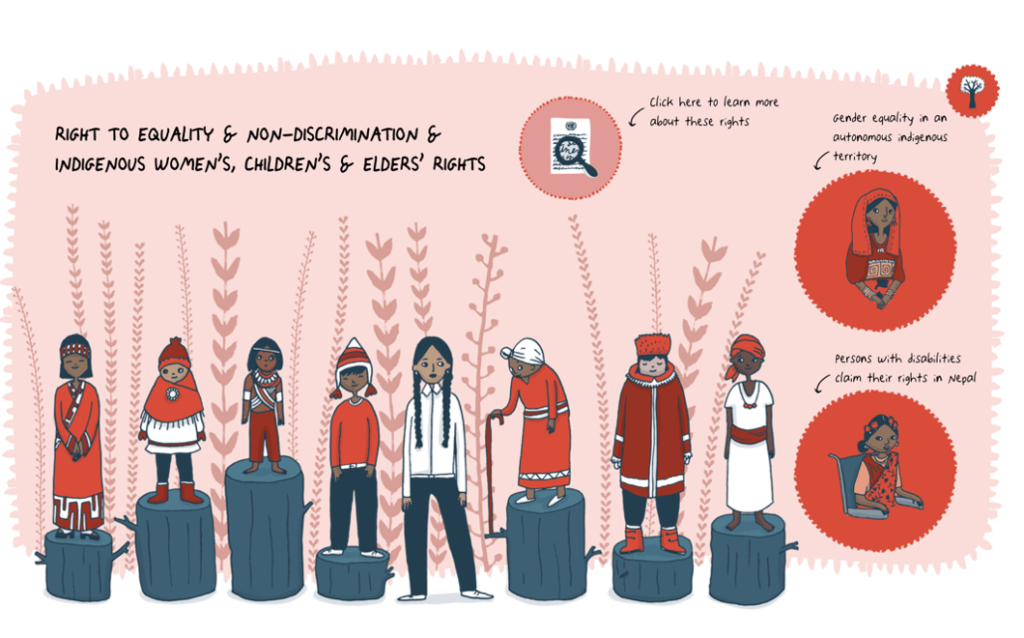

We also came up with fictional case studies adapted from real-world scenarios, such as this example of the Tomorawa people. Based on the problems and challenges faced by Tomorawa people, learners had to identify which of their rights under the UNDRIP were violated.
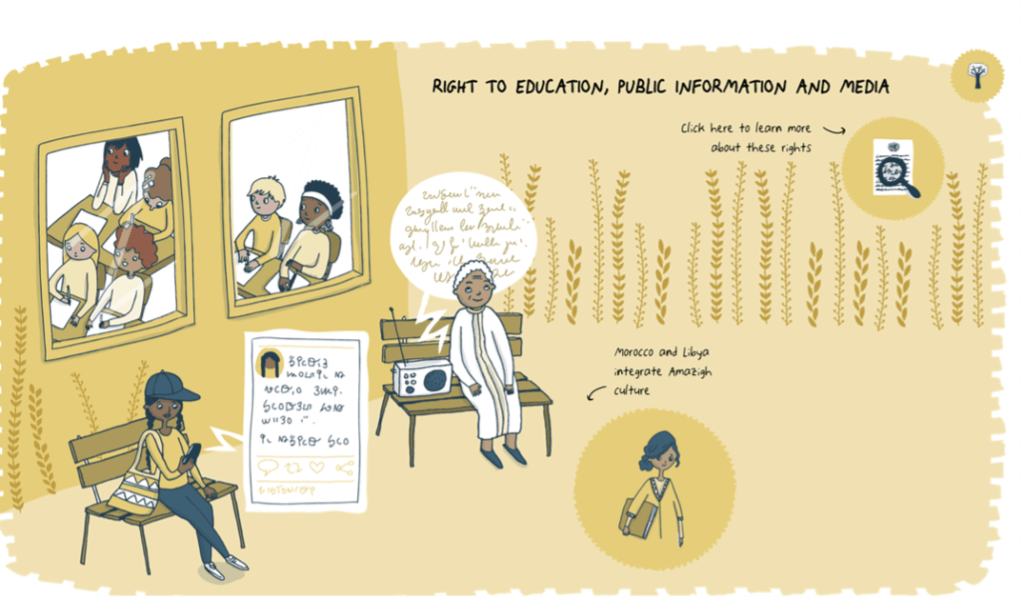
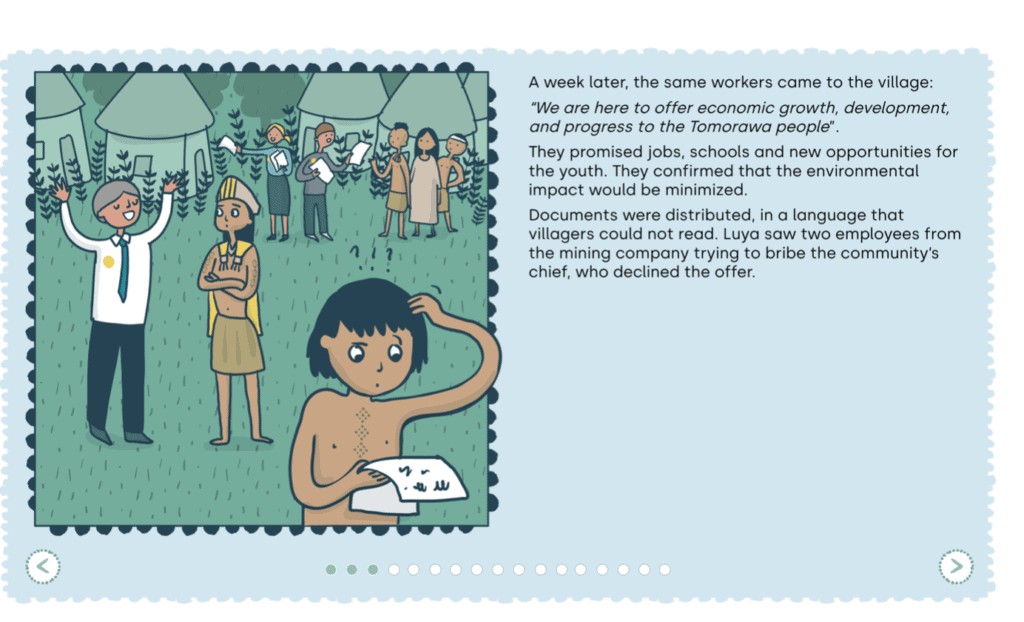
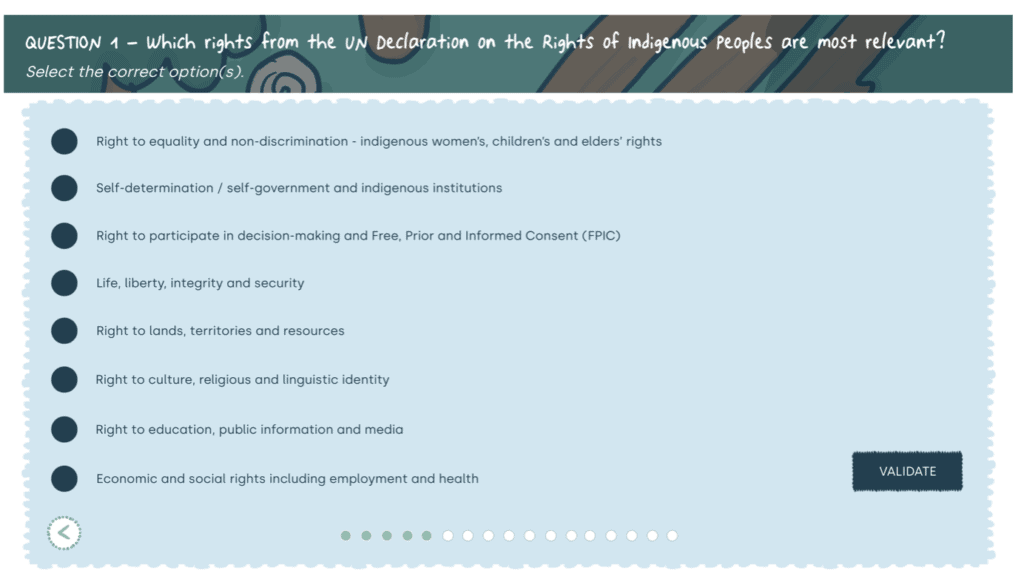
In the second module, learners discovered more about the UN human rights protection system and the various charter-based and treaty-based mechanisms available to promote and protect Indigenous Peoples’ rights.
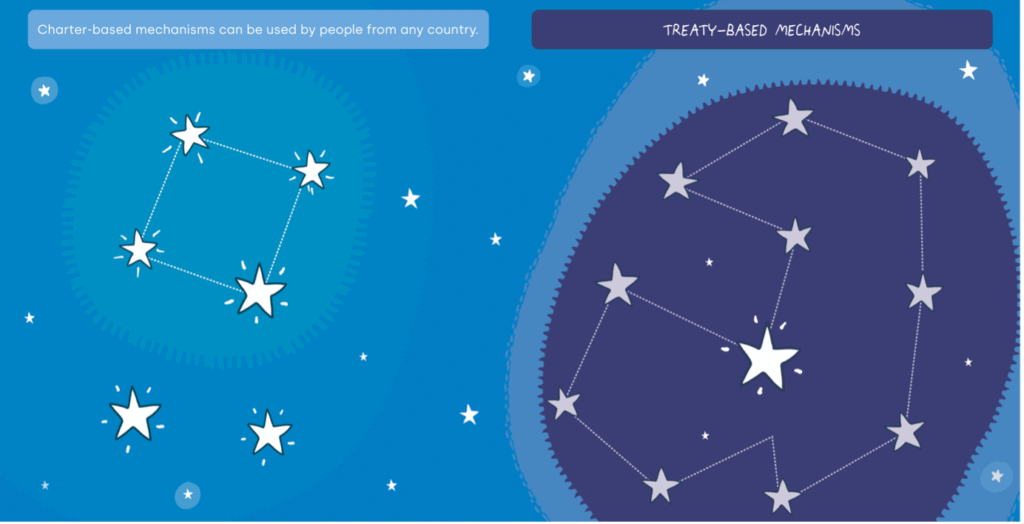
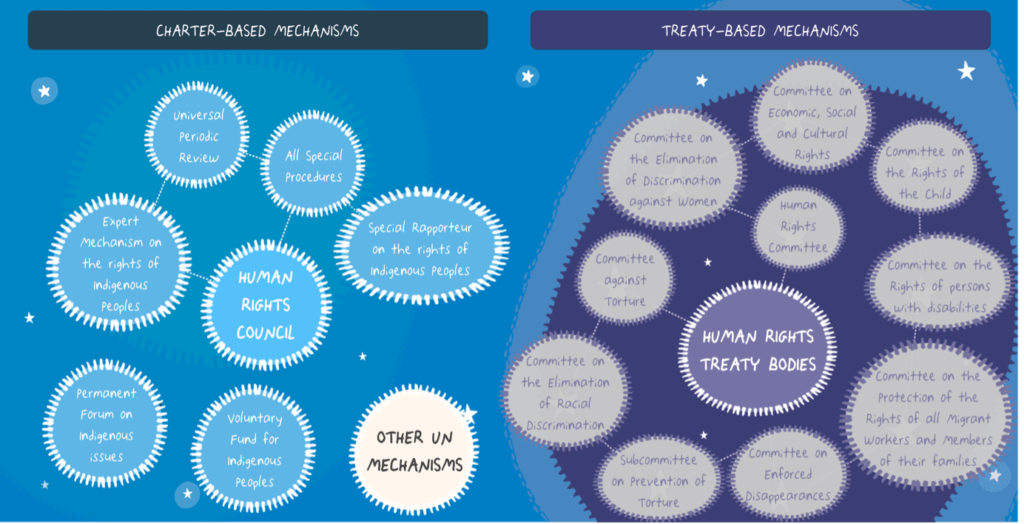
Throughout the two modules, the learners had the opportunity to apply their knowledge by emphasizing, reflecting and making meaningful decisions. This enabled them to better understand how the UNDRIP and other UN Human Rights mechanisms aid in the defence and protection of Indigenous Peoples in real life.
THE RESULT
Here’s what our client, the OHCHR has to say about the results of project!
“For us, this important project presented a double-challenge: make complex legal definitions and UN processes accessible to all and ensure that the illustrations and imagery used would adequately reflect the cultural identity of indigenous peoples. Therefore, we engaged in a broad consultation process with a varied test-group composed of indigenous peoples. This required multiple “back and forth” and our e-Skills partner proved to be very patient and open to understand the particular sensitivities at stake. Overall, we worked on this project with eSkills colleagues openly, with flexibility and trust, as well as on an equal basis bringing together our respective skills and knowledge basis.”
-Paulo David, Chief Indigenous Peoples and Minorities Section at the United Nations Human Rights Office.
The E-learning course on the rights on the Indigenous People has since been published live on the OHCHR’s blog, and is accessible to the public! Once you successfully complete the course, you will also get a certificate from the UN Human Rights Office.
Take a look at this teaser to see more exciting snippets of the newly published course!
Free access to the course : https://www.ohchr.org/EN/Issues/IPeoples/Pages/E-learningIP.aspx
Need help with your e-learning project?
Whatever your training requirements, eSkills can help you with a customized, bespoke solution catered to your learning needs.
Want to learn more? Contact us at hello@eskills.ch for an informal discussion!

